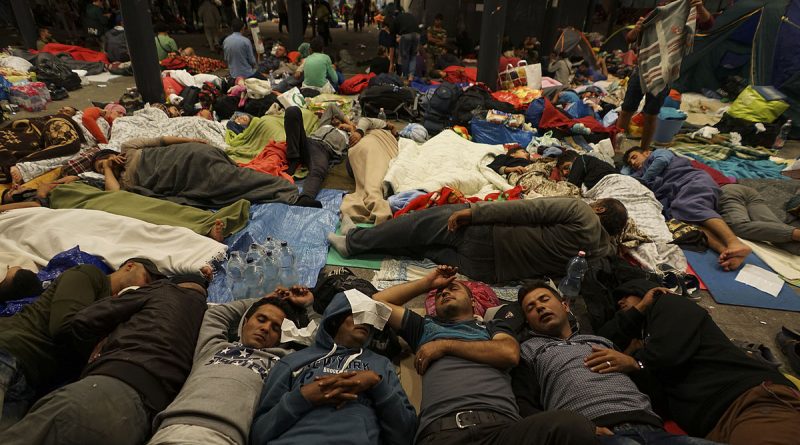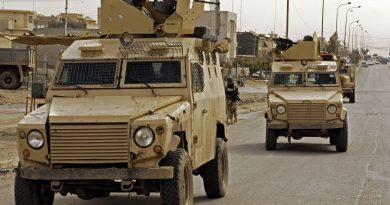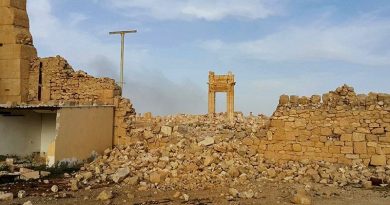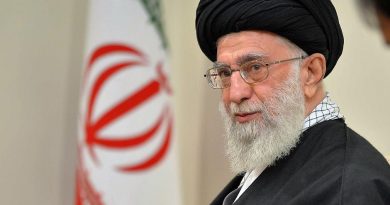The Middle East and European Security
The security situation on the European continent is taking punches from all sides in recent years.
When the Americans began their interventions in the Middle East, starting with Iraq, very few people could have predicted how the resulting political transformations in the region could affect European security. The Middle East always seemed to be farther away than it actually was and there was hardly any discussion of the possible globalization of security challenges in the future. Today, things are very different indeed.
Events taking place at its gates have moved into Europe at the speed of light. The instability of newly-established or troubled regimes in the Middle East and North Africa present a direct challenge to European security and are nudging the continent towards becoming a reluctant but active player on a foreign stage. Should it fail to do so, many others, including Russia and Iran, will gladly seize the opportunity to strengthen their regional influence and raise the price of future negotiations and compromises. Whoever fails to understand this basic dynamic will surely be a latecomer to the game with significantly less influence on decreasing the size of the burden it will have to bear on its own territory.
The migration crisis did not arise in a vacuum.
It is the result of conflicts in Syria, Iraq, Afghanistan, Lebanon and Libya. Pro-democratic movements in the Arab world, commonly known as the “Arab spring,” quickly lost their initial strength in the absence of sufficient support from an organized civil society in those countries and the justifiable anger of the masses was recast into a golden opportunity for extremist political and national movements which managed to take control of either parts or whole Arab countries without great difficulty. Through its military engagement, the West managed to destabilize the old autocratic regimes and their security networks, providing a strong windfall to those who presented themselves, at least initially, as anti-regime people’s movements.
Regardless of their not so “democratic” history, the absence of these networks has opened the way for extremist organizations such as Al-Qaida, Islamic State and others to take the “security stage,” gain media attention and thereby attract large numbers of followers from western European countries who consider themselves members of severely neglected social and religious groups. The Middle Eastern problem thus arrived in Europe and was only a matter of time before it grew into what it is today.
The arrival of millions of migrants in Europe was initially understood as a matter of applying international humanitarian standards and demonstrating the advantages of its open borders. In reality, no one could predict the very large number of people who would request asylum and overwhelm European institutions. The system was not intended or adapted to process thousands of people who set out for Europe on foot, without any international assistance.
Television footage of these lost souls made Europeans aware of the crisis that was growing each day.
The eyes of the European public turned to their political elites which from the outset maintained that the European Union would apply its humanitarian standards. The elites, however, were perhaps unable to predict or resist a less direct influence which gradually became dominant. As the columns of people arriving on the shores of Europe decreased, they were gradually granted entrance and their suffering alleviated. Instead of ending the resulting political upheaval in Europe, the migration crisis had a “boomerang effect,” redefining the political landscape in both the most developed and so-called “transit” European countries.
The fears of Europeans about the presence of foreigners in their neighborhoods, even if unjustified, became fertile ground for the spread of extremist political groups which previously never succeeded in attracting such support in times of stable security situations. Voters shifted to the right and enabled parties pledging the protection of western and Christian values to rise as an unavoidable factor in the European political context, in some cases even taking power.
Even in the absence of a massive influx of refugees, their absorption remains a central political question in the EU, likely to define the future of this organization.
Those who oppose accepting the refugees no longer hesitate to reject the proposal of the European Commission, fully aware that the political climate in Europe has sufficiently changed so that Brussels can no longer impose such a solution upon them. Instead of worrying about undermining the political position of their respective countries within the EU, political elites are now more focused on strengthening their domestic base. With each new round of elections in European Member States, power is thus shifting away from the forces of closer EU integration to emphasis on much greater independence of Member States in decision-making.
In the end, the question remains whether anyone could have fully grasped the peculiarities of the Middle East and its potential to impact the political climate in Europe so severely? What is certain is that those who intervened in the Middle East militarily certainly did not and that whatever warning signs they heeded by reducing those interventions to a minimum, as a lesser evil, came quite late. Did this shift come too late?
Syrian refugees in Budapest, Hungary. Photo by Mstyslav Chernov / CC BY-SA 4.0
The opinions expressed in this blog are solely the authors’ point of view and do not bind the Center for International Studies, its Director or any other researcher.
![]() This work is licensed under a Creative Commons Attribution-NonCommercial-ShareAlike 4.0 International License.
This work is licensed under a Creative Commons Attribution-NonCommercial-ShareAlike 4.0 International License.




